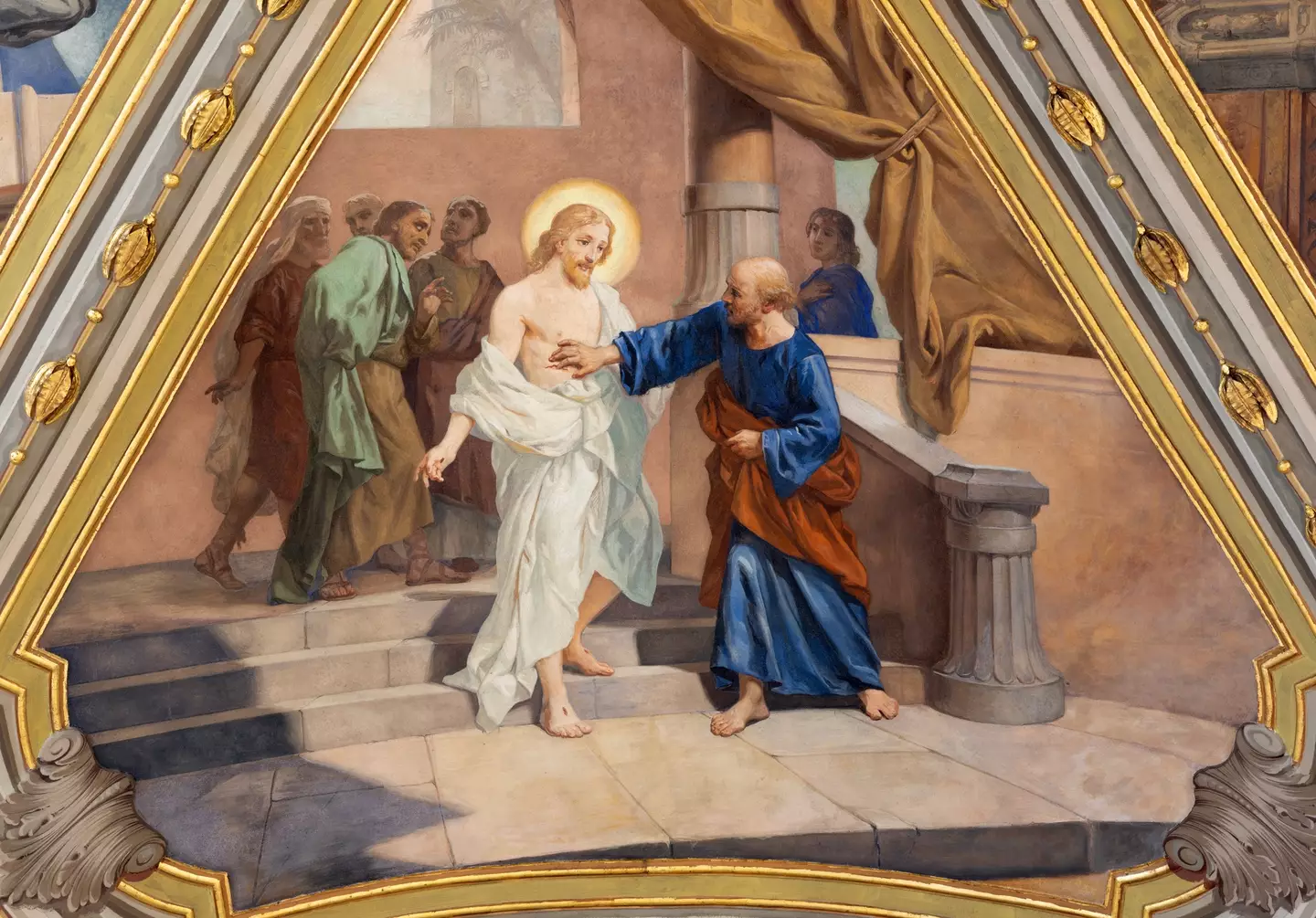
The contents of the Bible has once again been called into question, with people asking why the Gospel of Thomas has been 'removed' from the ancient text.
There are 66 books in the Bible, with 39 in the Old Testament and 27 in the New Testament.
However, there's a growing list of books that aren't considered canon with the Bible. While the likes of Tobit and Judith are excluded from the Protestant canon (referred to as the Apocrypha), the Book of Enoch and the Gospel of Thomas were never included in the holy scripture.
As for the Gospel of Thomas, it's largely omitted due to how it paints Jesus in a whole new light.
Advert

The movie Stigmata followed Patricia Arquette as a hairdresser who was possessed by the spirit of a dead priest and tried to translate the Gospel of Thomas.
While that was fictional, the real-life Gospel of Thomas was discovered in Egypt in 1945.
Unearthed alongside books known as the Nag Hammadi library, scholars suspect that these works were discarded due to a letter from Bishop Athanasius that appealed for a strict canon of Christian scripture.
The Gospel of Thomas is so controversial because it contains 114 sayings attributed to Jesus Christ, with many of them not appearing anywhere else in the Bible.
Instead of being the messianic son of God, the Gospel of Thomas portrays Jesus as more of a new age guru who states people need personal awareness and self-discovery instead of churches to worship at.
As pointed out by MailOnline, the Gospel of Thomas has become popular again since content creator Nick Di Fabio shared it with his audience.
The Gospel of Thomas opens by saying: "'These are the secret sayings which the living Jesus spoke and which Didymos Judas Thomas wrote down."
It suggests that the book was written by the same Thomas who doubted Jesus' resurrection. Di Fabio claims that, unlike the four canonical gospels (Matthew, Mark, Luke, and John), the Gospel of Thomas has 'shocked theologians for centuries'. Serving more as a book of sayings, lines include, "Split a piece of wood, and I am there," and "Whoever discovers the interpretation of these sayings will not taste death."
The Catholic Church has long debated the Gospel of Thomas, especially for its controversial suggestions that the Kingdom of God is a spiritual reality within us all instead of a physical place we should strive to reach after death. Despite what Di Fabio says, it's true that the Gospel of Thomas was never actually 'banned'.
Then again, the origins of the Gospel of Thomas have also been called into question, with Bart Ehrman writing in After the New Testament: A Reader in Early Christianity: "While some of these sayings may be quite old - may, in fact, go back to Jesus himself - the document as a whole was probably written early in the second century."
Still, the Gospel of Thomas refers to 'the Living Jesus' as a voice that speaks to you through the sayings in the book. The Living Jesus' voice is supposedly behind all creation, and with him being the reason behind the creation of the cosmos, we're told to look to him as more of an entity rather than an actual man who lived thousands of years ago.
As the Gospel of Thomas goes against a lot of what we're told in the canonical version of the Bible, you can see why the likes of the Vatican might want to keep it under wraps.